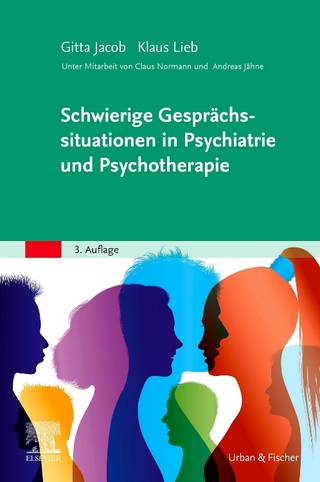
Treating Trauma-Related Dissociation
WW Norton & Co (Verlag)
978-0-393-70759-5 (ISBN)
- Titel z.Zt. nicht lieferbar
- Versandkostenfrei
- Auch auf Rechnung
- Artikel merken
Therapists around the world ask similar questions and struggle with similar challenges treating highly dissociative patients. This book arose not only out of countless hours of treating patients with dissociative disorders, but also out of the crucible of supervision and consultation, where therapists bring their most urgent questions, needs and vulnerabilities.
The book offers an overview of the neuropsychology of dissociation as a disorder of non-realisation, as well as chapters on assessment, prognosis, case formulation, treatment planning, and treatment phases and goals, based on best practices. The authors describe what to focus on first in a complex therapy and how to do it; how to help patients establish both internal and external safety without rescuing; how to work systematically with dissociative parts of a patient in ways that facilitate integration rather than further dissociation; how to set and maintain helpful boundaries; specific ways to stay focused on process instead of content; how to deal compassionately and effectively with disorganised attachment and dependency on the therapist; how to help patients integrate traumatic memories; what to do when the patient is enraged, chronically ashamed, avoidant or unable to trust the therapist; and how to compassionately understand and work with resistances as a co-creation of both patient and therapist.
Relational ways of being with the patient are the backbone of treatment and are themselves essential therapeutic interventions. As such, the book also focuses not only on highly practical and theoretically sound interventions, not only on what to do and say, but places strong emphasis on how to be with patients, describing innovative, compassionately collaborative approaches based on the latest research on attachment and evolutionary psychology.
Throughout the book, core concepts—fundamental ideas that are highlighted in the text in bold so they can be seen at a glance—are emphasised. These serve as guiding principles in treatment as well as a summing-up of many of the most important notions in each chapter. Each chapter concludes with a section for further examination. These sections include additional ideas and questions, exercises for practising skills and suggestions for peer discussions based on topics in a particular chapter, meant to inspire further curiosity, discovery and growth.
Kathy Steele, MN, CS, is in private practice with Metropolitan Psychotherapy Associates in Atlanta, Georgia. She is a former President of the International Society for the Study of Dissociation. Suzette Boon, a pioneer in the diagnosis of trauma-related disorders, is a clinical psychologist and psychotherapist with a background in family and systemic therapy, cognitive and behavioral therapy, and hypnosis. She has worked extensively at both inpatient and outpatient psychiatric facilities. Since the late eighties, Suzette has specialized in the diagnosis and treatment of patients with histories of early psychological trauma, in particular patients with complex dissociative disorders. She is co-founder of the European Society for Trauma and Dissociation (ESTD) and was its first president. The International Society for the Study of Dissociation (ISSD) granted her the David Caul Memorial Award in 1993, the Morton Prince Award in 1994 and the President’s Award of Distinction and the status of Fellow in 1995. In 2009, she received the Lifetime Achievement Award from the International Society for the Study of Trauma and Dissociation (ISSTD). She is the co-author of Treating Trauma-Related Dissociation and Coping with Trauma-Related Dissociation, both ISSTD Pierre Janet Writing Award winners in the Norton Series on Interpersonal Neurobiology. She lives in Maarssen, the Netherlands. Onno van der Hart, Ph.D. is Professor Emeritus of Psychopathology of Chronic Traumatization, Department of Clinical and Health Psychology, Utrecht University, Utrecht, the Netherlands, and a psychologist. Until 2017 he was also a psychotherapist in Amstelveen, the Netherlands. He is a Past President of the International Society for Traumatic Stress Studies (ISTSS).
| Erscheinungsdatum | 15.01.2017 |
|---|---|
| Reihe/Serie | Norton Series on Interpersonal Neurobiology |
| Verlagsort | New York |
| Sprache | englisch |
| Maße | 213 x 264 mm |
| Gewicht | 1534 g |
| Themenwelt | Geisteswissenschaften ► Psychologie ► Klinische Psychologie |
| Geisteswissenschaften ► Psychologie ► Persönlichkeitsstörungen | |
| ISBN-10 | 0-393-70759-8 / 0393707598 |
| ISBN-13 | 978-0-393-70759-5 / 9780393707595 |
| Zustand | Neuware |
| Haben Sie eine Frage zum Produkt? |
aus dem Bereich


